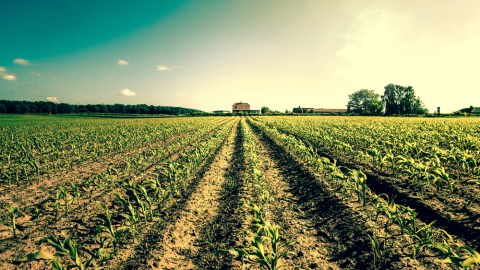More Efficient Farming Practices Will Prevent Future Hunger

What’s the Latest?
With the planet’s population expected to reach 10 billion sometime before the next century, there exists a palpable fear that mankind’s agricultural capabilities will fail to produce enough food to feed that many people. New research led by scientists at the University of Minnesota suggests otherwise. Their new study, published in the journal Science, says the world could easily provide for all its future citizens as long as habits leading to agricultural inefficiency and wastefulness are subdued in the near future.
What’s the Big Idea?
According to this report in The Guardian, current farming practices are remarkably wasteful. About half the fertilizer and over 60% of the nitrogen used to rear the world’s crops is misused — often poured on in excess to little effect. One-third to half of the world’s crops end up going to waste, usually because infrastructure in developing countries lacks the updates necessary to maximize output. Also, tackling a somewhat more contentious subject, the study noted that our agricultural outputs today would be enough to feed 10 billion people except for one major diverting of resources. From The Guardian:
The research also found that at least 4 billion people could be fed with the crops we currently devote to fattening livestock, fuelling the argument that the over-reliance on meat in the west and among the growing middle classes in the developing world is an increasing problem when it comes to feeding the world.
The study seems to take the stance that a heightened focus on efficiency, an effort to minimize waste, and sacrifices made by meat-reliant societies would be enough to easily feed 10 billion people.
Keep reading at The Guardian
Photo credit: Kasper Nymann / Shutterstock





